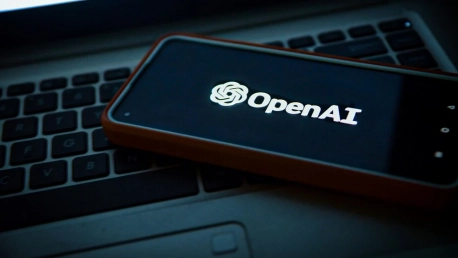OpenAI has taken a significant leap in conversational AI by endowing ChatGPT with the power of memory. This evolution empowers the AI to recall previous interactions, paving the way for conversations that are more coherent, context-aware, and tailored to individual users. This milestone in personalization and interaction fluidity reflects a major advancement in making AI exchanges more human-like. By selectively rolling out this feature, OpenAI demonstrates a careful approach to deploying sophisticated enhancements, aiming to create a more dynamic and user-responsive AI conversationalist. As ChatGPT becomes more proficient in remembering earlier exchanges, users can expect a seamless and intuitive dialogue with technology, marking a move toward AI systems that can interact with the sophistication of a personal assistant, mindful of their conversational history.
The Emergence of AI with a Personal Touch
Memory Capabilities and Personalization
ChatGPT’s memory capabilities are impressively structured to memorize and retrieve user-specific preferences, such as writing style, tone, formatting, and particular directions. This advanced feature allows the AI to generate personalized responses with greater efficiency, as it eliminates the redundancy of users communicating their requirements in successive interactions. Enabling more customized responses, ChatGPT becomes even more invaluable in a wide range of situations, both personal and professional. By adapting to each user’s distinct needs, the tool enhances its utility and user experience, making it an essential component for those seeking tailored assistance. This evolving functionality not only demonstrates ChatGPT’s sophistication but also its commitment to meeting user needs with a keen sense of context and precision, ensuring that it continues to be a key resource for many.
Improving Utility and Productivity
ChatGPT’s new feature to recall past interactions is set to significantly enhance user efficiency. It will aid in completing repetitive tasks with improved consistency, such as preparing recurrent meeting agendas or crafting updates for social media platforms. This advancement is a steppingstone toward an era where AI extends beyond linguistic comprehension to encompass personalization. With such capability, AI tools are becoming increasingly akin to personal digital assistants that can anticipate our preferences and adapt to our daily routines. This marks a notable evolution in the relationship between humans and artificial intelligence, promising a more intuitive and supportive collaboration. The implication of this development is far-reaching, indicating a future where AI will be seamlessly integrated into our personal and professional lives, offering assistance that is tailored to our behavior and needs.
Privacy and User Control at the Forefront
User-Directed Memory Management
OpenAI prioritizes data privacy by enabling users to manage ChatGPT’s memory function. This pivotal feature allows individuals to specify what the AI should remember or discard, thus placing the reins of data privacy firmly in their hands. With an elaborate settings panel at their disposal, users can navigate their privacy preferences with ease, reflecting OpenAI’s deep commitment to ensuring user control and safeguarding data. By offering such meticulously crafted data governance tools, OpenAI not only adheres to privacy norms but also fosters a trust-based relationship with its users, acknowledging the importance of confidentiality in the digital realm. This conscientious approach is a testament to OpenAI’s dedication to user-centric privacy practices and places a high value on personal agency in the stewardship of sensitive information.
Data Usage and the Opt-Out Option
While the memory feature is designed as a default setup, users who are mindful about their data being utilized for AI training can opt out, thus ensuring their privacy. This level of user empowerment is not only crucial in maintaining trust but also vital in shaping the AI’s learning to be ethical and user-respecting. The availability of ‘Temporary Chat’ mode further enriches the spectrum of user preferences, offering a zero-memory interaction mode for those seeking maximum privacy.In conclusion, the integration of memory into ChatGPT marks a pivotal moment in the evolution of generative AI, steering toward an era of personalized and intuitive systems. This feature not only expands the tool’s capabilities but also offers a glimpse into the future of human-AI interactions, where every exchange is an extension of a continuous, memory-rich dialogue. OpenAI’s vision of a bespoke AI experience is indeed coming to fruition, one remembered conversation at a time.









